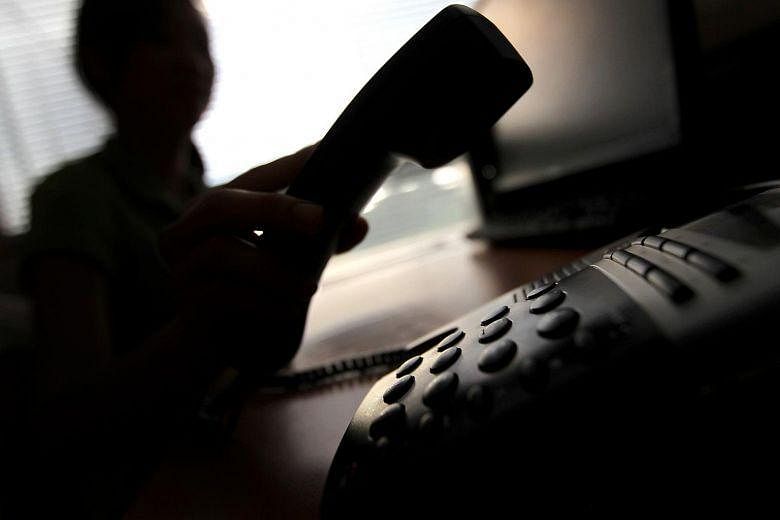For nearly a week, Ms Zhou (not her real name) hid in a hotel in Somerset and isolated herself from family and friends, under the instructions of scammers who were impersonating officials from China.
Believing that she was under investigation by the Chinese authorities for being part of a money-laundering syndicate, the 22-year-old student wired a total of $500,000 to the scammers from Sept 2 to Sept 7.
It was only after she became uncontactable on Sept 6 that her boyfriend made a "missing persons" report with the Singapore police, who found her the next day.
Yesterday, she recounted the ordeal to reporters in an interview facilitated by the Singapore police to warn others about similar scam tactics.
Ms Zhou received a phone call on Sept 2 from a woman claiming to be from DHL to notify her that a parcel sent to China in her name had been seized by the authorities there as it contained fake passports and credit cards.
The woman then transferred the call to the "Singapore 999 police hotline", which then transferred Ms Zhou to a call with the "Chinese police".
Pretending to be police officers from Shanghai, the scammers told Ms Zhou that they were investigating her for transnational crimes including money laundering and selling stolen bank accounts.
In subsequent video calls, they showed her their "police badge" and sent her "official documents" that had been photoshopped with her name.
"It all looked so real, so I believed them," she said. "To prove my innocence, they said, I had to provide my bank details and show that I wasn't in any financial need to have committed such crimes."
Under their instructions, Ms Zhou then checked into a hotel on Sept 2 without informing anyone and lied to her boyfriend that she was staying at a friend's place.
She was also warned by the scammers not to tell anyone about what was happening as the police investigation was highly classified, or she would end up in jail.
For the next four to five days, Ms Zhou isolated herself in the hotel room, but maintained contact with her boyfriend via text messaging.
She allowed the scammers to monitor her every move via video calls that went on throughout the day, even when she was sleeping.
When she lacked money to wire funds to the scammers, they told her to lie to her parents, who run a family business in China, to get more money.
It was only four days later, on Sept 6, when Ms Zhou became uncontactable, that her boyfriend sensed something was wrong and notified the Singapore police.
When police found her the next day, it took them some convincing before she realised she had been scammed, said Ms Zhou.
Looking back on the incident, she said: "When they first called me about the parcel, I should have just hung up or gone to the nearest police station to verify their claims."
Superintendent Chew Jingwei, who heads the syndicated fraud branch at the Commercial Affairs Department, said the public can protect themselves from becoming victims by being wary when they receive unsolicited calls.
Chinese-official impersonation scams are one of the top 10 scam types in Singapore.
In the first six months of this year, there were 122 cases reported, with a total of $7.1 million cheated. The largest sum cheated in a single case was $1.36 million.


